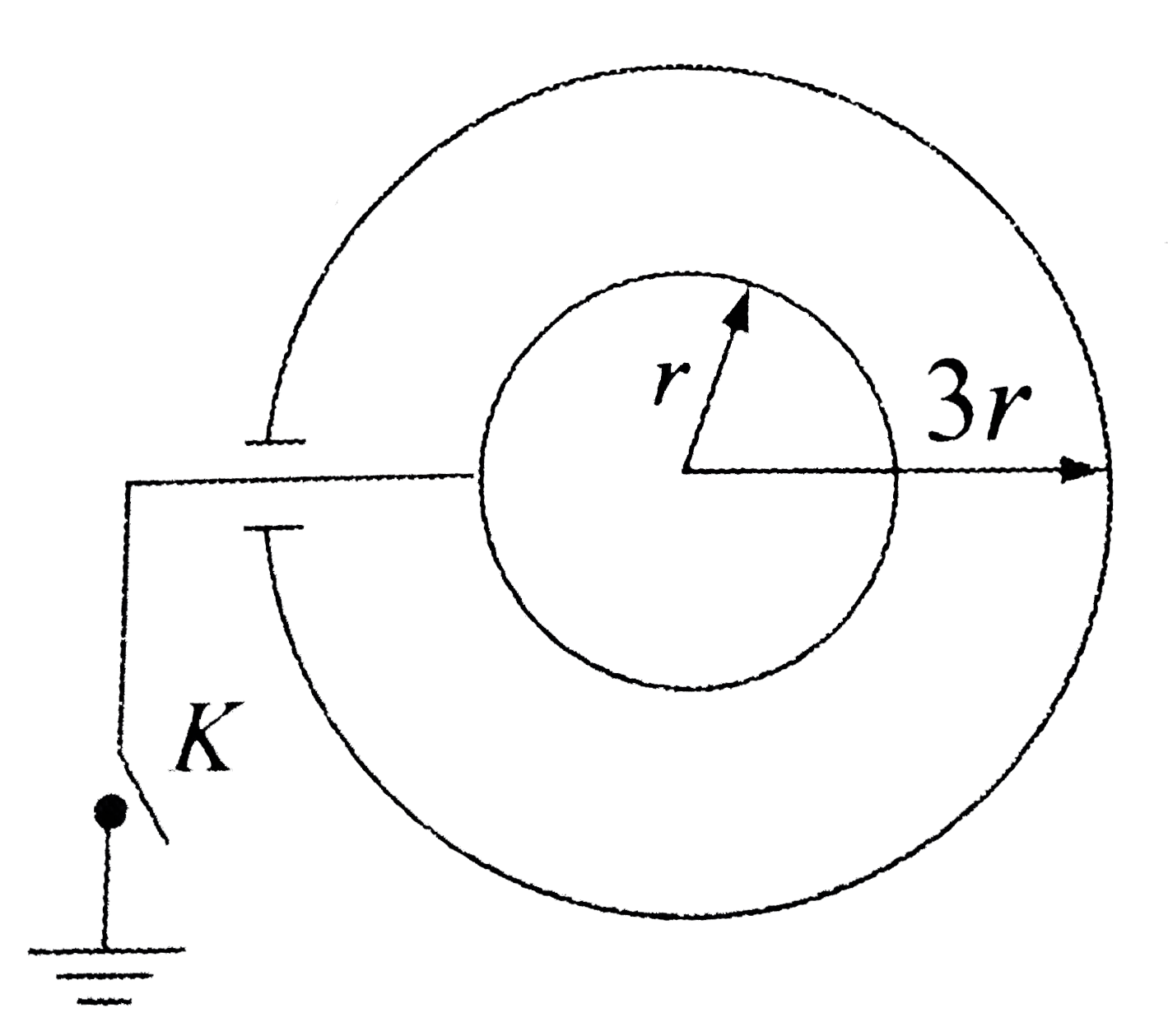Complete Solutions to Integer of chapter ELECTRIC POTENTIAL of Class 12 book with complete answers and questions
| Class 12 | PHYSICS |
| Chapter | ELECTRIC POTENTIAL |
| CENGAGE PHYSICS | Integer |
| Number Of Questions | 5 |
| Academic Year | 2023-24 |
There are `27` drops of a conducting fluid. Each drop has radius `r`, and each of them is charged to the same potential `V_1`. They are then combined to from a bigger drop. The potential of the bigger drop is `V_2`. Find the ratio `V_2//V_1`. Ignore the change in density of the fluid on combining the drops.
View Solution(Figure 3.158) shows two conducting thin concentric shells of radii `r` and `3 r`. The outer shell carries charge `q` and the inner shell is neutral . The amount of charge that flows from the inner shell to the earth after the key `K` is closed is equal to `(1//n)^(th)` of the charge on the outer shell. What is the value of `n` ?
 .
.
View SolutionA charge of `5 mu C` is placed at the center of a square `ABCD` of side `10 cm`. Find the work done `("in" mu J)` in moving a charge of `1 mu C` from A to B.
View SolutionThe linear charge density on a dielectric ring of radius `R` vanes with `theta` as `lambda = lambda_0 cos theta//2`, where `lambda_0` is constant. Find the potential at the center `O` of the ring [in volt].
View SolutionThe point charges `-2q, -2q` and `+q` are put on the vertices of an equilateral triangle of side `a`. Find the work done by some external force in increasing the separation to `2a` (in joules).
View Solution
Integer questions and complete solutions for chapter ELECTRIC POTENTIAL of CENGAGE PHYSICS (HINGLISH) of Class 12